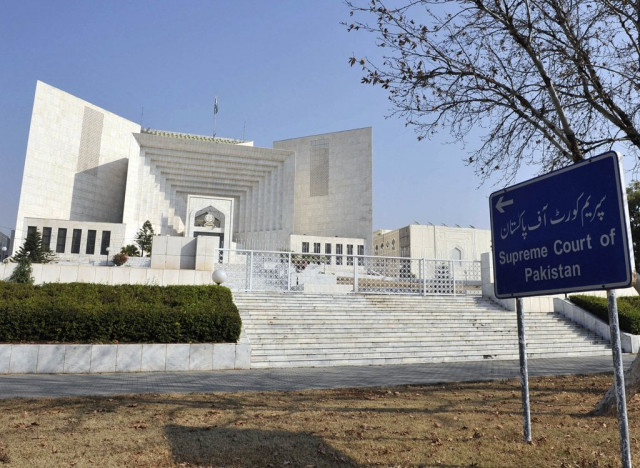Top court says issuing ordinance ‘undemocratic’
Court asks AGP about details of sacked employees

The Supreme Court on Thursday observed that issuing an ordinance was not a democratic process and also asked the attorney general for Pakistan (AGP) to inform it about the recruitment procedure and details of the sacked employees.
A five-member larger bench of the apex court, headed by Justice Umar Ata Bandial, was hearing review petitions filed by sacked workers against its Aug 17 verdict, which had struck down the Sacked Employees (Reinstatement) Ordinance Act, 2010, rendering around 16,000 government employees jobless.
During the course of proceedings, Advocate Hamid Khan, the counsel for the sacked employees of Sui Southern Gas Company (SSGC), said 1,122 of his clients were from Sindh and Balochistan.
He added that these employees were recruited in 1996 and their services were terminated in 1997 and 1999.
“These employees had become regular, so the Federal Service Tribunal [FST] reinstated them.”
Hamid said the department challenged the FST decision before the SC and the apex court had maintained it.
Justice Sajjad Ali Shah asked Hamid to submit the copy of the court decision. Hamid replied that the restoration decision was not on record. “It has to be put on record,” he added.
Read Supreme Court ‘tough’ on govt workers
The lawyer said the employees had approached the Sindh and Balochistan High Courts to implement the FST decision.
He added that the BHC had ordered their reinstatement in light of the FTS decision. The SHC gave the option to employees if they wanted to be reinstated under the ordinance.
The SSGC employees agreed before the SHC to implement the decision of the FST under the ordinance.
Justice Bandial noted that the court had to review the procedure about the reinstatement of the employees.
He added that there would be separate implications of the ordinance, act and the high court decision.
Justice Mansoor Ali Shah asked as to why the Act was issued to give relief to a specific group. He added that the court could not read the minds of the lawmakers, but the documents presented were silent as well.
He inquired as to whether or not any benefit could be given to employees who had served for 10 to 12 years.
Justice Bandial remarked that the court decision had also withheld the benefits to those who had served for 10 to 12 years.
Hamid said a worker who was recruited at the age of 19 had now turned 40.
Justice Bandial noted that the court had to review the status of the employees appointed through the ordinance.
He said that ordinance lapsed after a certain period and asked what would be the status of employees recruited under it.
Justice Mansoor remarked that the issuance of an ordinance was not a democratic process.
“If this process continues, then every government would issue an ordinance for recruitments.”
On the court’s observations, senior lawyer Raza Rabbani said this was how matters were proceeding under the present government.
He added that he would submit various documents for the significance of the ordinance.
“No section of the Act was against fundamental rights or the Constitution,” he added.
Justice Bandial remarked that the AGP should present his arguments on which department adopted the procedure for appointment of employees.
The judge added that the AGP should also inform the court that despite its decision, could the sacked employees be reinstated in any way. The court later adjourned the hearing till December 13.
(With input from APP)



















COMMENTS
Comments are moderated and generally will be posted if they are on-topic and not abusive.
For more information, please see our Comments FAQ